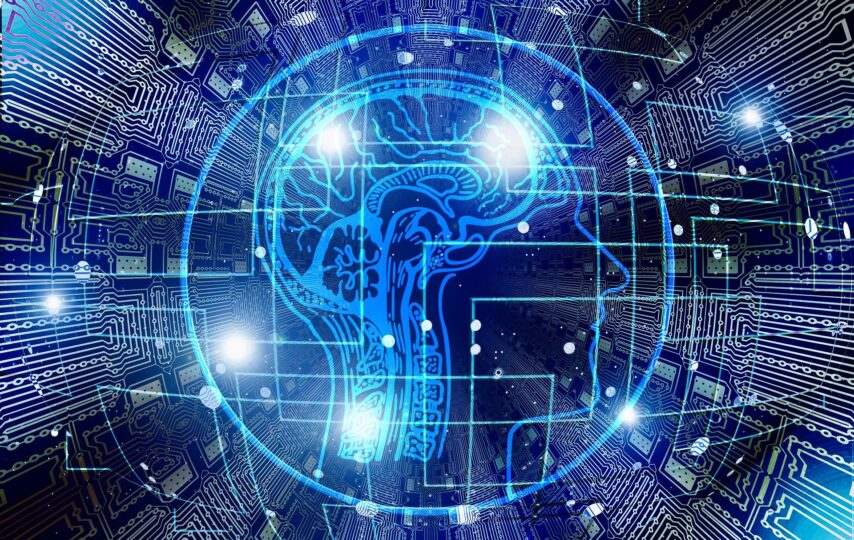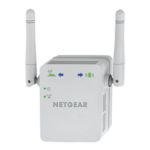Kevin Ashton coined the phrase “Internet of Things” (IoT) in 1999 and since then has taken the world by storm. As we move forward into a society saturated with smart devices and intelligent technology, we become more familiar with this innovative technology. The National Science Foundation defines the term.
This allows us to expand our control on reality through interconnectedness and encourages self-automation within household appliances and systems. It results in less time spent on repetitive tasks and more time doing what we want.
An example that’s been around for a while is the Amazon Dash button which allows for easy reordering of household goods such as soap, paper towels, and toilet paper. This is an example of IoT in action. Small interconnected devices make our lives easier and more efficient.
If we look at how society has improved technologically over the past few years, this has driven many people to purchase these appliances and technologies. Most recently, within the smart home industry (a term used to describe homes with IoT technologies), the most commonly found technology was smart TVs, followed by Smart Thermostats, according to Statista. As seen below, Smart TVs were at 35% adoption in 2017, whereas they were only 27% one year earlier.
Smart Home
The smart home industry will continue to grow as we move forward and make more technological advancements and progressions.
IoT Technology and the Smart Home: A New Basis for Society?
As IoT technologies become more popular, it is increasingly vital that they are appropriately protected against cyber attacks. One example of this is protecting these devices, ensuring that they do not get hacked into or compromised in some way that would allow for dangerous circumstances to arise (such as someone hacking through your front door while you’re away). On October 21st, 2016, these dangers were made clear when hackers gained access to over 100,000 homes in San Jose, California. This issue has yet to be resolved on a wide-scale level, but there are ways to combat it.
Many companies have taken extraordinary measures to combat this issue of cyber security. One example is the Canadian-based company, AllSeen Alliance. This alliance provides a secure automation platform that acts as an IoT standard for hundreds of companies, including Microsoft, LG, and Lenovo. Another company working hard to bring IoT technologies into everyday life is Nest. It has become one of the most popular Smart Home device manufacturers due to its compatibility with iOS devices, voice control via Google Assistant, and home security features through Dropcam.
Google acquired them in 2014 for $3.2 billion, which shows just how much potential these businesses hold. This acquisition was made under Alphabet Inc (Google’s parent company). With big companies buying up such successful startups, it’s safe to assume that IoT technologies are essential to our future.
The Internet of Things can significantly improve everyday life for people regardless of age, race, or financial status. To have these capabilities at your fingertips each day is a thought that would have made science fiction writers salivated with envy just 10 years ago. Now, through IoT technology, we are one step closer to being able to do so.The IoT is a system that can connect an object or device to the internet, permitting it to send and receive data.
The IoT has many applications in various sectors; for example, an agricultural business’s sensor-based irrigation system would be connected to the internet so owners could tell if there was a broken pipe or if their crops needed more water based on readings generated by their sensors. Businesses benefit from this technology because they can become more efficient and save money by using interconnected devices that provide real-time information about how well their equipment is working. Thus, they can offer insight into what needs improvement and whether or not a piece of equipment needs to be replaced.
IoT in daily lives
The IoT can also save lives by providing doctors and other healthcare professionals with up-to-date information from their patients’ medical devices. For example, if someone is in the hospital for surgery, has a heart condition or diabetes, and has an insulin pump attached to them that’s connected to the internet, they will be able to receive real-time data about their vital signs – including their blood sugar levels – while they’re being operated on in the operating room. This technology is beneficial because it saves lives by ensuring that people receive prompt treatment in emergencies involving their medical devices during surgeries or other complicated procedures when a doctor may not have immediate access to medical records.
Smart devices can be a big help to people who are elderly or disabled as well. Older adults may have trouble getting around their houses because they experience physical limitations, and smart devices make it possible for them to monitor things like the temperature in their homes from wherever they are using their phones or laptops, which can prevent illnesses from occurring. People with disabilities will also benefit because smart home technology makes it easier for them to live independently without having to rely on others. For example, someone in a wheelchair that cannot get up the stairs could still turn the lights on at night by simply speaking into his phone when he gets home instead of having to find someone else to help him.
Energy is another area where the IoT can help. For example, a power plant can use innovative technology to track the energy it produces and how much it has built over time to make more efficient decisions about creating new power sources or finding ways to reduce costs. This technology will benefit renewable energy sources like solar and wind because these kinds of energy production depend on weather conditions that are impossible to predict accurately in advance. Still, technology that allows companies to respond intelligently to fluctuations in energy output as they occur could enable businesses to that produce renewable energy more predictably and stability about their revenue stream. Refer to RemoteDBA.com to learn more.
In addition to business-focused devices, consumers also stand to benefit from the IoT as smarter home products come onto the market. People who own smart devices connected to the internet will be able to monitor things like the security of their homes and receive real-time updates on what’s happening inside of them, including whether someone is breaking in. They will also be able to monitor the status of appliances around their houses, for example, by receiving notifications when there is a leak under their sink or if they left an oven on at home while they’re out.
The Internet of Things has many benefits for people across different sectors. Still, it will significantly affect those who own smart devices that can communicate with each other over the internet. Businesses stand to save money through increased efficiency and improved decision-making processes through more data about how well their equipment performs in real-time.










